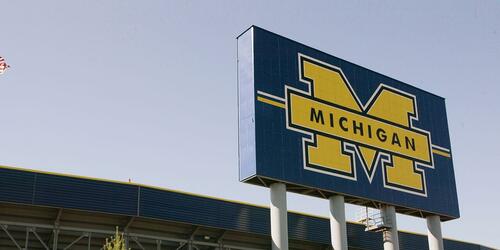The University of Michigan continues to exponentially grow the number of staffers dedicated to advancing diversity, equity, and inclusion, with at least 241 paid employees now focused on DEI and payroll costs exceeding $30 million annually, according to an analysis conducted for The College Fix.
The payroll costs are $23.24 million for salaries and $7.44 million for benefits, or $30.68 million, an amount that would cover in-state tuition and fees for 1,781 undergraduate students.
Thirteen DEI staff members earn more than $200,000 and 66 earn more than $100,000 when factoring in benefits.
In addition, 76 faculty or staff members work part-time as “DEI Unit Leads” advancing diversity efforts in one of UM’s 51 schools, colleges, and units, bringing UM’s core DEI headcount to 317, said economist Mark Perry, who conducted the analysis.
The number of positions at Michigan’s flagship university advancing DEI exceeds more than 500 when including those who work full-time or part-time on DEI and factoring in open and unfilled positions, as well as employees who serve as “DEI Unit Leads” and others who serve on dozens of DEI committees, Perry said.
“That brings the total number of UM employees who advance DEI on either a paid or unpaid basis to well more than 500 and possibly as high as 600,” said Perry, a paid consultant for The Fix who used public salary and website data for the analysis.
University of Michigan disputes the findings, arguing in a statement to The College Fix they are “flawed and misleading” since they include employees whose primary duties are not solely DEI-related.
“Diversity, equity and inclusion are core values at the University of Michigan. As such, there is not a specific budget set aside for diversity outreach and recruitment,” said Colleen Mastony, university spokesperson, in an email Monday to The College Fix.
“Most employees working on DEI are not solely dedicated to DEI efforts but do so in addition to their other roles and responsibilities.”
“…The university’s DEI efforts are appropriate to the size, scope, and complexity of our university – spanning the university, including 51 units over our three campuses, our academic medical center, and our over 100,000 students and employees. Although some work is done centrally, much of it is done at the unit and department level,” Mastony said.
Today, the public university employs at least 241 paid staff members whose main duties are to provide DEI programming and services as a primary job responsibility, according to Perry.





